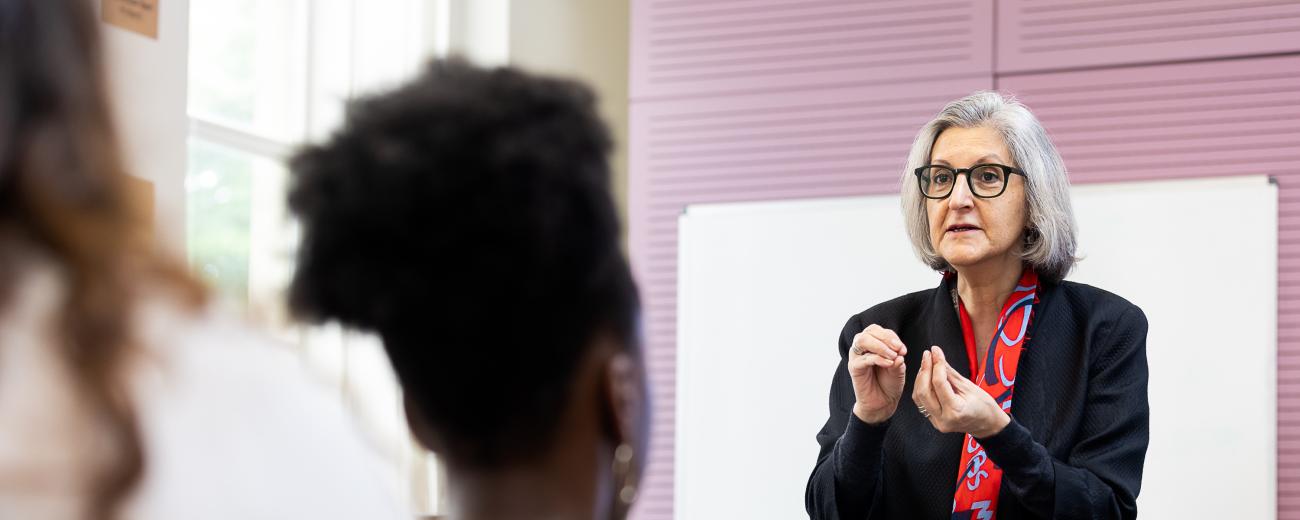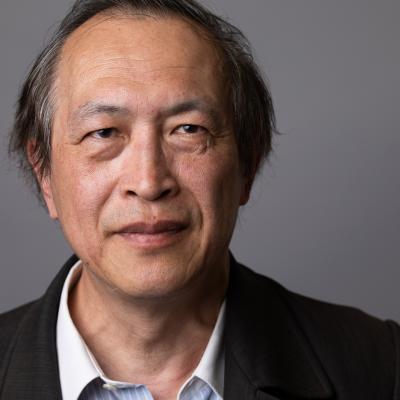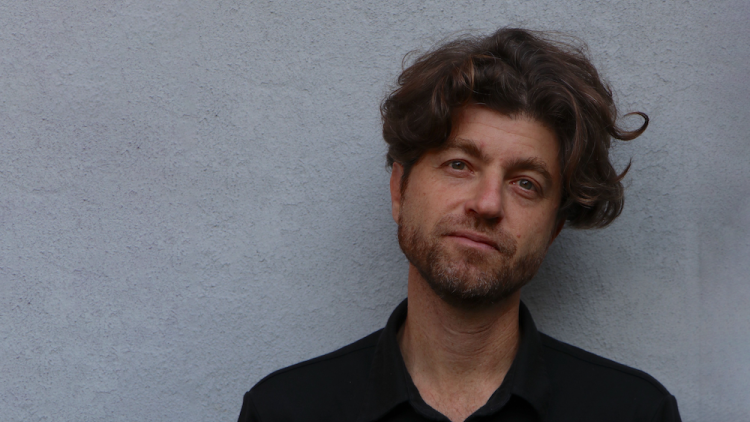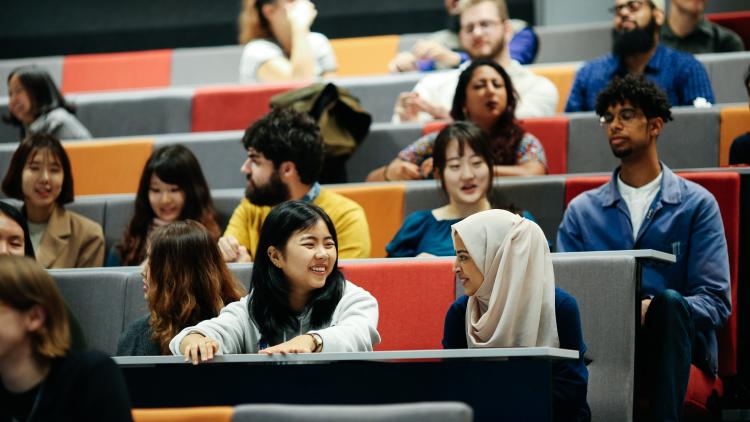MPhil/PhD in Linguistics


Key information
- Duration
- 3 years
- Start of programme
- September
- Attendance mode
- Full-time or part-time
- Location
- On campus
- Fees
-
Home (full-time): £4,860 per year
International (full-time): £23,390 per year - Entry requirements
-
We normally require a 2.1 bachelor's degree (or its equivalent) plus a Masters degree in appropriate subject area plus one reference. In exceptional cases we may accept applicants who do not meet these criteria if they show evidence of a strong Masters degree and/or appropriate level of relevant work experience. International applicants should also see Doctoral School English language requirements
Course overview
The MPhil/PhD in Linguistics is a research training programme which combines foundational and advanced courses in the core areas of linguistics, training on research methods and research work leading to a dissertation.
The Department is strongly research-oriented, and through a combination of courses, advanced seminars and individual supervision, aims to provide the intellectual discipline, knowledge and skills required of a well-rounded researcher. Supervision is offered in theoretical, descriptive and comparative linguistics, translation and language pedagogy. Depending on the research topic, it may also be possible to arrange joint supervision with specialists in other departments.
Why study Linguistics at SOAS?
- UK Top 10 in the 2021 QS World University Rankings
- Modern Languages and Linguistics at SOAS has been ranked 10th in the UK in the Research Excellence Framework (REF) 2021
- we've also been ranked 4th for research environment - with 100% of our research ranked as 'internationally excellent' and 85% as 'world-leading' - and 8th for research outputs in the REF 2021
- SOAS is unique in the UK for offering a range of subject combinations that include the opportunity to study the languages, literature, and cultures of Africa, Asia and the Near and Middle East
- unrivalled staff expertise in the UK and worldwide in a wide range of Asian, African, Middle Eastern and Australian languages
- access to SOAS’s library, one of the UK’s five dedicated national research libraries
- dedicated Linguistics Resource Room, with computers, sound-proofed recording booth, video and audio editing facilities
Structure
The PhD programme in Linguistics is a rigorous, structured training programme with different activities and requirements taking place throughout the period of the programme.
All students register in year 1 of the programme as MPhil students. The upgrade from MPhil to PhD registration takes place at the end of the first academic session for full time students (or at the end of the second academic session for part time students).
All new MPhil/PhD students are provided with a supervisory committee of three members, comprising a main or primary supervisor, and a second and third supervisor. The split in time commitment across the supervisory committee is 60:25:15. In the first year students are expected to meet their main supervisor on a bi-weekly basis for a period of at least one hour.
The student’s primary supervisor is always a member of the Department in which the student is registered. The second and third supervisors, who act in a supplementary advisory capacity, may be from the same Department, or other Departments/Centres in the Faculty of Languages and Cultures or in Departments/Centres in the other Faculties of the School.
Depending on the nature of the research, joint supervision is sometimes recommended, under the direction of two primary supervisors. In such cases the student has only one further supervisor on their committee.
The student’s progress is further overseen by the Departmental Research Tutor.
Year 1
In the first year, students prepare for research by following the research training seminar (RTS) in Linguistics convened by the Departmental Research Tutor and supported by the generic training on offer in the Academic Development Directorate (ADD).
Students may also be encouraged by supervisors to attend additional taught courses relevant to their research and to their training needs. These may include specialist disciplinary, language or regional culture courses or research training in other Departments outside the Faculty.
All MPhil/PhD students are encouraged to attend the talks of the departmental seminar series, or those organised by the Centre for Language Pedagogy or the Centre for Translation Studies. In addition, there are special PhD seminars in which advanced PhD students present their work and which are open to staff and students.
Year 1 full-time students (year 2 for part-time students) are required to submit a core chapter and research proposal (of about 10,000 words), typically including the following elements:
- research rationale and context of proposed research
- main research questions
- literature review
- theoretical and methodological framework and considerations
- proposed research methods
- ethical issues (where applicable)
- outline structure of PhD dissertation
- schedule of research and writing
- bibliography
Adjustments to one or more of these sections, including additions or deletions where appropriate, are possible by prior arrangement between the students and lead supervisors.
The upgrade process from MPhil to PhD status is based upon an assessment of the core chapter and research proposal by the student’s research committee, and upon on a 20-30 minute oral presentation, followed by discussion. The oral presentation is given to Departmental staff, supervisory committee members and research students. This is followed by an interview of 10-15 minutes between the student and the committee. On successful completion of the upgrade process, students are formally upgraded to PhD and proceed to the second year.
If the assessors consider there to be shortcomings in the core chapter or research proposal, students will be asked to revise it to their satisfaction before the upgrade to PhD status can be confirmed. Students are not normally permitted to proceed to the second year until the upgrade process has been completed.
Year 2
The second year (or part-time equivalent) is normally spent engaged in research. This may be by any combination of fieldwork and research in libraries and material collection as agreed between the student and the supervisor(s).
Year 3
The third year (or part time equivalent) is devoted to writing up research for the PhD thesis. During this time, students will normally give a presentation in the PhD seminar series organised by the Departmental Research Tutor, which is open to staff members and other research students. During the third year (or part time equivalent) students will present draft chapters to their main supervisor for comment, before completing a final draft of the thesis. Once a full draft is complete, the work is assessed by all members of the supervisory committee and the student can either submit the thesis or move on to Continuation Status to be given a further 12 months to complete the thesis and submit for examination.
The thesis must be completed within 48 months from the time of registration (or part time equivalent).
The thesis – not to exceed 100,000 words in length – is examined by two leading authorities in the field.
PhD degrees are awarded by SOAS from registration in 2013 and are subject to SOAS regulations.
Important notice
The information on the website reflects the intended programme structure against the given academic session. The modules are indicative options of the content students can expect and are/have been previously taught as part of these programmes.
However, this information is published a long time in advance of enrolment and module content and availability is subject to change.
Teaching and learning
Research in the department
Research interests of the faculty are wide-ranging and span the world's languages, from Chinese to Arabic, Swahili to Korean, Mongolian to Japanese. This focus on Asian and African languages, combined with the unparalleled access to the considerable language and regional expertise of other SOAS researchers constitutes a unique resource for the study of theoretical, comparative and descriptive linguistics, language documentation and description, language pedagogy and translation.
Some recent research theses
- Sarah Croome: CDA of Cornish language revitalisation discourse
- Yingying Mu: Language choice in a multilingual village n S-W China
- Ellen Foote: Sign language policy in Burma
- Zeina Eid: Family language policy - maintenance of Lebanese-Arabic in the UK
Academic staff research areas
- Dr Yan JIANG 蔣嚴 蒋严 PhD (London), Senior Lecturer in Linguistics and the Languages of China
- Semantics (formal, cognitive, lexical), pragmatics (relevance theory, formal pragmatics), Chinese linguistics (syntax, semantics and pragmatics of Mandarin, Wu and Yue dialects), dynamic syntax, Chinese rhetoric, linguistic theory of translation, literary stylistics
- Dr Christopher Lucas BA (LONDON) MPhil PHD (CANTAB), Senior Lecturer in Arabic Linguistics
- Historical linguistics, Arabic linguistics, the syntax-semantics interface, pragmatics, philosophy of language, Dynamic Syntax, Relevance Theory, Arabic language, Afro-Asiatic languages
- Professor Lutz Marten MA PHD (LONDON), Professor of General and African Linguistics
- Syntax, semantics, pragmatics and their interfaces, historical and comparative linguistics. Bantu languages and linguistics, language and society in Eastern and Southern Africa.
- Professor Julia Sallabank BA (Hons) OXON, MA (LONDON) PhD (LANCASTER), Professor in Language Support and Revitalisation
- Sociolinguistics, language support, language policy, revitalisation methods, literacy practices in endangered languages, Guernesiais
- Professor Justin Watkins BA (LEEDS) MA PHD (LONDON), Professor of Burmese
- Burmese language and literature; Mon-Khmer and Tibeto-Burman languages; phonetics and speech acoustics computer lexicography; sign languages in South East Asia
Scholarships
Employment
Graduates of the School of Languages, Cultures and Linguistics leave SOAS not only with linguistic and cultural expertise, but also with skills in written and oral communication, analysis and problem solving.
Recent graduates have been hired by:
- Africa Matters
- Amnesty International
- Arab British Chamber of Commerce
- BBC World Service
- British High Commission
- Council for British Research in the Levant
- Department for International Development
- Edelman
- Embassy of Jordan
- Ernst & Young
- Foreign & Commonwealth Office
- Institute of Arab and Islamic Studies
- Middle East Eye
- Saïd Foundation
- TalkAbout Speech Therapy
- The Black Curriculum
- The Telegraph
- United Nations Development Programme
- UNHCR, the UN Refugee Agency
- Wall Street Journal
Find out about our Careers Service.





